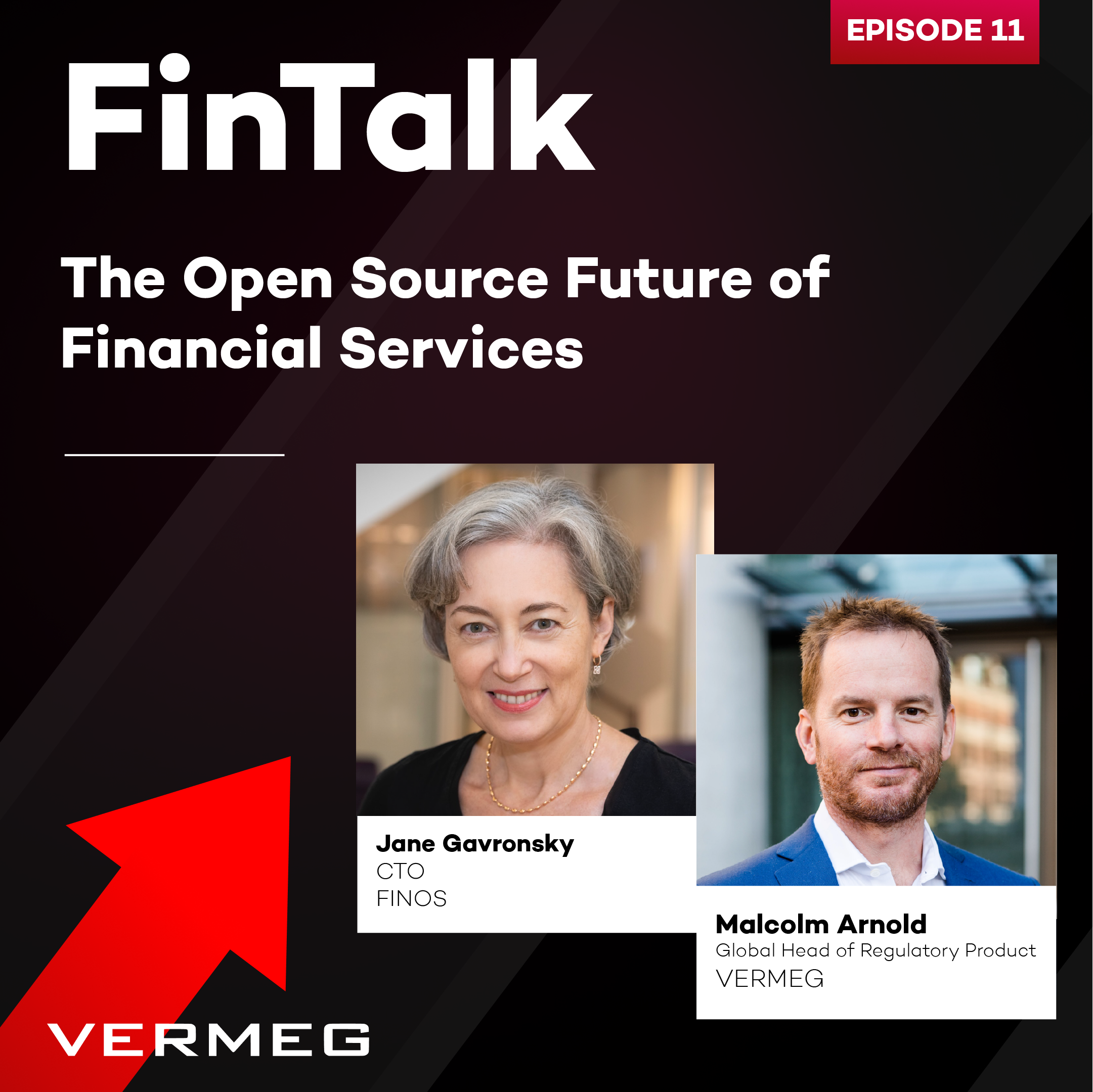
Listen on other Podcast Platforms
Hosted By Jawad Akhtar
Jane Gavronsky, CTO- FINOS
Malcolm Arnold, Global Head of Regulatory Reporting, VERMEG
When regulatory reporting is a burden and cost shared by all, it’s an area ripe for collaboration, and one growing movement to make that happen is that of open source software.
Instigating that evolution is FINOS, and their CTO Jane Gavronsky joins us on FinTalk to discuss the virtues and value in both open source principles and the culture surrounding it.
We also hear from our own Global Head of Regulatory Product, Malcolm Arnold, about the potential future implications and who needs to drive the buy-in to open source projects.
This episode of The VERMEG podcast covers:
VERMEG: https://www.linkedin.com/company/vermeg/
Jawad Akhtar: https://www.linkedin.com/in/jawad-akhtar-313562b/
Jane Gavronsky: https://www.linkedin.com/in/janegavronsky/
Malcolm Arnold: https://www.linkedin.com/in/malcolm-arnold-265a1b40/
“Open source software, just at a very basic level, means that the source code is available to be read, and in theory, also contributed to.” – 3:45 – Malcolm Arnold
“There are more and less permissive licences as to when someone uses the code, are they obligated to donate back the changes that they’re making? The most permissive, you can just take a copy and update it privately. That opens opportunities for people to develop technology without having to pay for some of the core components, which drives the cultural component. It creates a more inclusive, more even playing field.” – 5:30 – Jane Gavronsky
“Everybody’s doing the same thing. If everyone participates in shares in delivering something, you save a ton of money and time, frankly. It creates a much more even ecosystem, because if you’re all using the same thing, it’s much easier to process the data, generate the data, and have more information about what’s going on in the market. ” – 9:10 – Jane Gavronsky
“At a cultural level, RegTech is very aligned with the ideas behind open source, which is obviously a lot more collaborative & community minded. It’s not driven by anything other than the brutal fact that most of the regulatory requirements that financial institutions have to adhere to are really just a burden and a cost for them. There’s not an area of much competition.” – 10:20 – Malcolm Arnold
“I think the regulators are also in a position where they want to learn from the industry. That’s where the industry coming together and showing an example of where they’re collaborating, drives the lever towards accepting.” – 15:20 – Jane Gavronsky
“It feels like there’s a lot of this collaboration happening at the grassroots, and that the stage is set for a bit of a revolution in the next five years or so. I know it’s been slow paced, and maybe some listeners are thinking ‘Where are the fruits of this and why hasn’t it happened before?’, but it does feel like there’s a growing momentum. ” – 18:30 – Malcolm Arnold
“They say a rising tide lifts all boats, right? So that’s an easy analogy to imagine. But it’s not just that, it’s also that you grow the ecosystem, you grow the ability for others to enter the market and have a play in it. ” – 20:35 – Jane Gavronsky